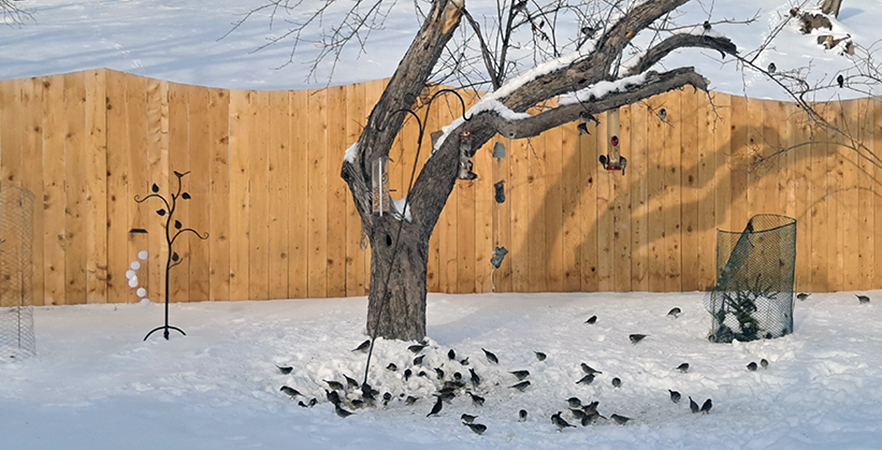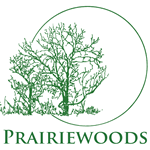The expression “for the birds” has always intrigued me. My grandparents and parents employed it when they wanted to discredit a claim, practice,\ or belief as trivial or meaningless. “Wearing shoes with no socks is for the birds,” they might say. In my family, “Nichts taugen (nothing good)!” was the German equivalent. According to Grammarist (https://grammarist.com/words/for-the-birds/), ”For the birds is an idiom describing something as useless, meaningless, or only believed by the gullible. It is often used with the modifier strictly. The phrase was coined in the US military during World War II. The original phrase included a swear word (that’s sh-t for the birds), talking about birds pecking at horse manure for seeds. That’s for the birds hit its peak in popularity around the 1960s.”
Placing birds—indeed all our creature-kin—in a lower place than humans in a hierarchy of being is a by-product of the traditionally received interpretations of the Priestly source (P-Source) from the Genesis creation mythology embedded in Genesis 1. These received interpretations suggest that humans are to “subdue” the Earth and “have dominion” over the creatures so that humans are commanded to dominate, control, rule over, consume or dispose of other creatures as they see fit. “God blessed them and God said to them: Be fertile and multiply; fill the earth and subdue it. Have dominion over the fish of the sea, the birds of the air, and all the living things that crawl on the earth” (Genesis 1:28, New American Bible). If humans are considered the “top of the heap,” “King of the hill,” and lords and masters of all creation, it would not be surprising that their posture toward their Earthen creature-kin might be less than reverent, and in many cases, hostile. Translations of the terms subdue (Hebrew, kavash) and have dominion (Hebrew, radah) have plagued us with a “dominion theology” for centuries.
In his article on “Rethinking Dominion Theology,” (Direction, Fall 1996, Vol. 25, No. 2, 16–24) Theodore Hiebert elaborates on the Hebrew verbs kavash and radah, insisting that while both were traditionally interpreted to connote violent subjugation, and lent themselves to dominion theology, nothing could be further from their intended use. Hiebert maintains that the verb radah may have been preferred in Genesis 1:28 precisely because it was the term that implied an overpowering of the intractable Earth, considering creation a “kind of adversary that had to be subdued and controlled—overpowered in a way—in order to survive at all.” Preindustrial agrarian demands would have easily explained this notion. Humans were seen to be at odds with an outrageously wild, uncontrollable creation. If their etiological tales (stories of origin) set them above all other creatures—and creation itself—their higher purpose was to dominate and bring it into submission, the very essence of a hierarchically ordered universe. Such a hierarchical arrangement may also have indicated the social location of the priestly presider, establishing a clear preference for priestly standing as superior to those who required their mediating presence and ritual leadership in relationship to God. But Hiebert reminds us that Genesis 2, from the Yahwist (J-Source) which contains an elder cosmogony, moderates the dominion theology in the priestly story of creation from Genesis 1. “The Lord God then took the man and settled him in the garden of Eden, to cultivate and care (Hebrew avad) for it.” (Genesis 2:15, New American Bible) There, the Hebrew verb is avad which means “to serve” as a caretaker of Earth. Thus, human beings are not created with special privilege and power, not with lordship, but with servanthood. This leads to a theology of inter-dependence, not a dominion. Human beings have as their primary vocation the care-taking of Earth, the servant-hood of all creation.
So, what about the birds? Jesus’ teaching in the synoptic parallels of the New Testament reflect this same hierarchy in the context of the teaching on faith. By the time Matthew’s and Luke’s redactors reflect Jesus’ teaching about the birds as an example, their hierarchical interpretation had remained pretty much the same. “Look at the birds in the sky; they do not sow or reap, they gather nothing into barns, yet your heavenly Father feeds them. Are not you more important than they?” (Matthew 6:26, New American Bible) cf. “Notice the ravens; they do not sow or reap; they have neither storehouse nor barn, yet God feeds them. How much more important are you than birds!” (Luke 12:24, New American Bible) The assumption, of course, is that humans are inestimably more important than the birds of the air. Without this assumption, we might question whether it is permissible, even advisable to treat our creature-kin as though they are sacred and to be revered. If they are not less important, but in fact to be cherished in the schema of creation, it changes the way we look at them, and at ourselves. Only recently are we learning how we are in communion with them in a profound and critically inter-connected web of relationships. This represents a shift. We speak of them as “kin,” as “family.” We recognize their inherent goodness, and their rights. We see that their welfare and ours are intimately intertwined.
As idiomatic usage evolves, it often reflects shifts in cultural, or in this case, ecological and spiritual awareness. Birds pecking at manure for seeds or other edibles is no longer considered an apt metaphor to describe the insignificance of life. At the height of the post–World War II Industrial boom, it may have been perfectly acceptable to look upon the lives of our avian-kin as lesser, even totally expendable, useless. Now, as the corrosive curtain of post-Industrial myopia lifts, we are becoming more and more aware of how inter-connected and embedded we humans are in the wider “We.” And our idioms are shifting along with our awareness.
I caught a conversation on the breeze last fall after the derecho between a Mom and her little girl in a stroller. The little one was gesturing animatedly at a flock of birds congregating around our backyard bird feeders, highly visible because the fence around the perimeter had been destroyed in the windstorm. There were quite a few avian-kin clamoring for their turn at the feeders which had been largely depleted by the vast numbers of displaced deer, squirrels, rabbits, raccoons and chipmunks. “Shhhh!” the Mother hushed her toddler, as she crouched low to the ground. “For the birds!” she whispered, her eyes dancing with the joy of the moment. The little one became immediately still, listening with her whole body, enraptured by her Mom’s riveted attention to the scene unfolding before them. The moment clutched at my heart-strings. The beautiful Mother was teaching her child the wonder of beholding the wider “We.”
“For the birds!” she sang. What a psalm of praise!
How might we sing differently if we began listening, seeing and being care-takers “for the birds?” And for all creation?
—Laura Weber, Prairiewoods associate director and retreats coordinator
From my bird’s eye view out the window …



